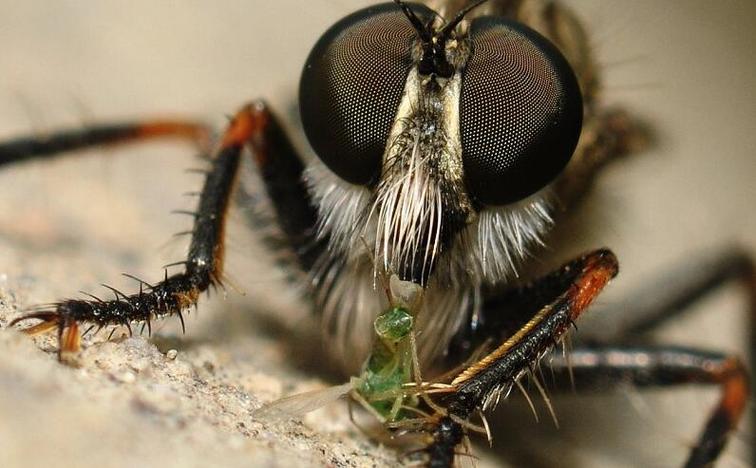
Do Horse Flies Bite?
Have you ever wondered if horse flies are as notorious for their bites as they are for their buzzing presence? In this detailed exploration, we delve into the world of horse flies, their behavior, and the truth behind their bites.
Understanding Horse Flies
Horse flies, also known as greenheads, are a type of fly that belongs to the family Tabanidae. They are named for their tendency to target horses, but they are not exclusive to these animals. Horse flies are found worldwide, particularly in areas with abundant vegetation and water sources.

These flies are easily recognizable by their large, dark bodies and prominent eyes. They are known for their painful bites, which can cause significant discomfort and swelling. Unlike mosquitoes, horse flies have a segmented proboscis that they use to pierce the skin and draw blood.
Do Horse Flies Bite Humans?
Yes, horse flies do bite humans. While they are more commonly associated with biting horses, they are not picky about their hosts. If a horse fly is looking for a blood meal, it will not hesitate to turn to a human as a potential target.
When a horse fly bites, it injects an anticoagulant into the wound to prevent blood from clotting. This anticoagulant is what causes the intense pain and swelling that follows a bite. The bite can also lead to allergic reactions in some individuals, which can cause severe swelling and difficulty breathing.
How to Avoid Horse Fly Bites
Preventing horse fly bites involves a combination of protective measures and understanding their behavior. Here are some tips to help you avoid these pesky insects:

-
Wear long-sleeved shirts and pants when outdoors, especially in areas known for horse flies.
-
Apply insect repellent containing DEET or picaridin to exposed skin and clothing.
-
Stay in areas with wind, as horse flies are less likely to fly into windy conditions.
-
Use fans or other devices to create a breeze around your seating area.
-
Eliminate standing water around your property, as horse flies lay their eggs in wet environments.
Dealing with Horse Fly Bites
If you do get bitten by a horse fly, there are several steps you can take to alleviate the pain and swelling:
-
Cool the bite with ice or a cold compress to reduce swelling.
-
Wash the bite with soap and water to prevent infection.
-
Apply a hydrocortisone cream or calamine lotion to reduce itching and swelling.
-
If you experience severe swelling or difficulty breathing, seek medical attention immediately.
Table: Horse Fly Bite Comparison
| Feature | Comparison |
|---|---|
| Bite Location | Most commonly on the legs, but can occur anywhere on the body |
| Pain Level | Highly painful, often described as a sharp, stinging sensation |
| Swelling | Significant swelling and redness can occur within a few hours |
| Duration of Symptoms | Symptoms can last for several days to a week |
While horse fly bites can be painful and uncomfortable, understanding their behavior and taking appropriate precautions can help minimize your risk of being bitten. By staying informed and taking the necessary steps to protect yourself, you can enjoy the outdoors without the worry of these pesky insects.




